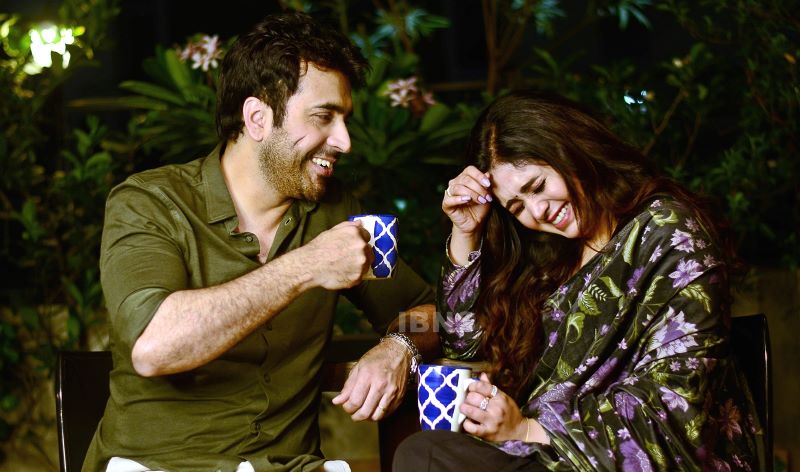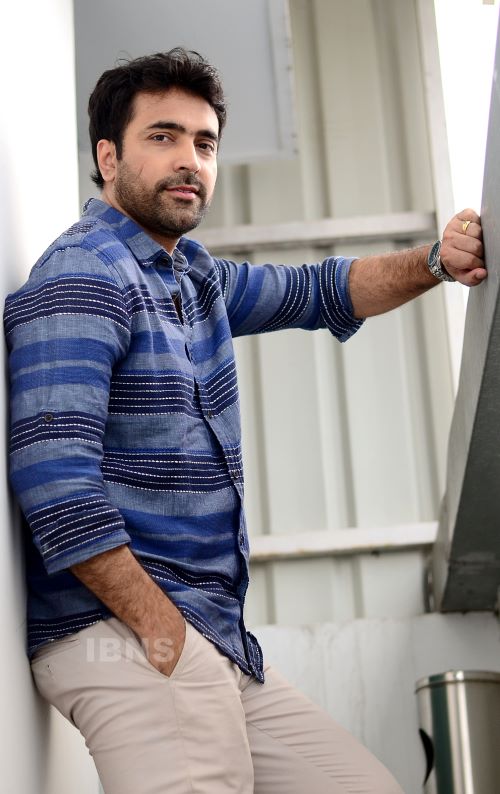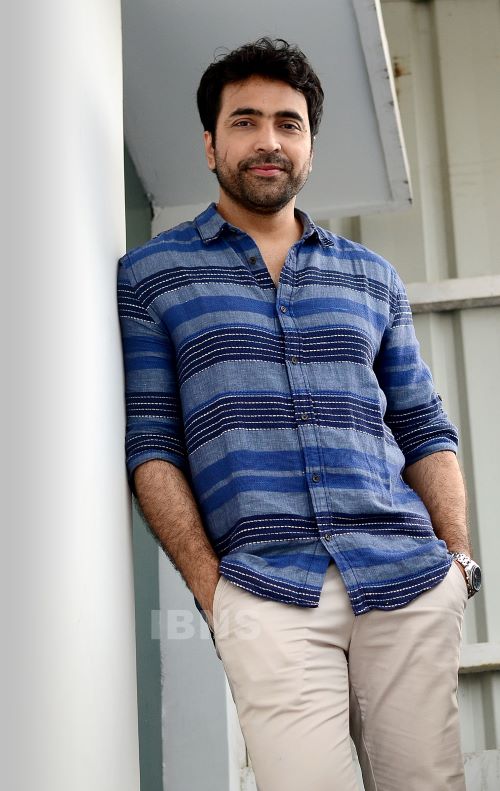I want to be more transparent with my choice of films: Abir Chatterjee
Bengali actor Abir Chatterjee plays a doting husband to protagonist Phullora (played by Ritabhari Chakraborty) in Aritra Mukherjee's Fatafati, which releases on Friday. In the backdrop of his recent successes both in Kolkata and Mumbai, IBNS correspondent Souvik Ghosh catches up with Abir to share his experience of working for Fatafati, his career post OTT series Avrodh 2 et al...

Q. How was slipping into a role which is a second fiddle to Phullora (Ritabhari's character in Fatafati) despite being a star in the Bengali industry?
A. I never thought of it in that way actually. During the entire process of the making, I never felt I was doing a favour by playing this role. Also, I never felt I was making a mistake by essaying this role coming from my position and experience. I always felt that the subject which the film deals with must be talked about. Moreover, I loved the story where Bachaspati (Abir's character in Fatafati) does everything for Phullora out of love. The way Fatafati has touched upon the normal lives of people hailing from suburbs has fascinated me. The film is not like a mouthpiece. I would have turned down the film offer if I had found Bachaspati as a flawless person. I always thought I should be a part of this film.

Q. Technically, did you have to adjust as an actor to play the role which is subservient to Phullora?
A. No, no. I acted on the basis of my character. Bachaspati loves his wife, desires her in every way including physically. He seemed a well sketched and well motivated character to me. Even the tussles between Bachaspati and Phullora were very spontaneous and practical. Everything was well structured for me. The only thing I had to adapt was the lifestyle and way of communication of people who come from the suburbs. Visually, I had to get a bit lean as per the demands of the character.
Q. How much Abir Chatterjee resembles Bachaspati?
A. Honestly, Bachaspati is too good to be true. He is setting the standards too high for all the husbands (laughs). I find myself in bits and pieces in every character I play.
Q. Do you fear getting stereotyped to gentleman-type roles?
A. No. I have played some other roles like the ones in Asur, Bornoporichoy, Flat No 609. But of course I have also played Sona-da who is lovable and admirable while Byomkesh is cynical and rough at times. So there are shades. I have played some fun-loving guy type of roles including the one in my upcoming film Bibaho Bibhrat. Above everything, I would love to explore more shades in the coming days.

Q. How much does your national exposure help you back home in terms of your craft?
A. I can't say that categorically but every process and experience teaches us something. I had mixed feelings when I worked in Hindi. It was a kind of debut in Hindi despite having a line of work against my name. People in Mumbai expected me to have some amount of professionalism, finesse and experience from me. I was not a fresh, raw talent but at the same time I was a complete stranger to the Mumbai circuit. It was quite an enriching experience for me. Any actor or an artiste would crave for these experiences, which help us to bring variation to our works.
Q. You wanted to reassess your career after Karnasubarner Guptodhon. Did you get time for that?
A. Reassessment is a constant process actually. I am trying to explore various kinds of works. I want to ensure that I don't take myself seriously at some point considering my line of work. In terms of my works, I want to become more transparent, meaning being clear with the kind of films or roles I want to work for. I would try to understand how serious my filmmakers, who would want to rope me in, are about their projects. I am trying to apply my own experience, be it right or wrong, into my works even if my perspective proves to be wrong sometimes.

Q. Is this urge to be more transparent stemming from an experience or an exposure to a different industry?
A. No, no it's stemming from my experience. Like whenever I am now offered a role, I ask the maker about his/her release plan. I have surpassed the age of working just for the sake of it. I need to know how serious a maker is.
(Photography: Avishek Mitra/IBNS)
IBNS
Senior Staff Reporter at Northeast Herald, covering news from Tripura and Northeast India.
Related Articles

'Our first star is gone': Family bids farewell to Sulakshana Pandit
Mumbai/IBNS: “She was the first star in our family,” wrote Durga Jasraj, daughter of the legendary Pandit Jasraj, remembering her cousin, actress-singer Sulakshana Pandit, who passed away in Mumbai on Thursday at the age of 71.

Shabana Azmi nearly quit Bollywood! The untold story of how Sulakshana Pandit saved her career
Mumbai/IBNS: Sulakshana Pandit, one of the front-ranking actresses and playback singers of 1970s Bollywood known for her graceful screen presence and soulful voice, passed away in Mumbai on Wednesday night after a prolonged illness. She was 71.

It’s a boy! Katrina Kaif and Vicky Kaushal welcome their first child
Mumbai/IBNS: Katrina Kaif and Vicky Kaushal have welcomed a baby boy, the Bollywood power couple announced on social media.

He said no — and she never married again! The sad love story of Sulakshana Pandit and Sanjeev Kumar
During the filming of the 1975 hit Uljhan, Sulakshana Pandit — the radiant star who ruled hearts in Bollywood’s changing era — lost hers to her leading man, Sanjeev Kumar. It was a love story that began on set but never found its ending.
Latest News

You’re killing your phone battery without realizing it — The mistakes to stop right now

Major format change! Next women’s World Cup to feature only 10 teams

Big rail upgrade: Narendra Modi unveils four new Vande Bharat Express in Varanasi, check out the routes now

Health time bomb: Study says India recorded 138 million kidney disease cases in 2023, 2nd worst globally

